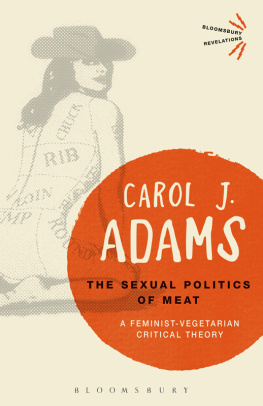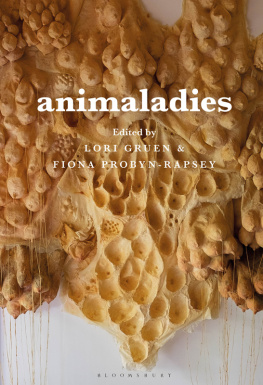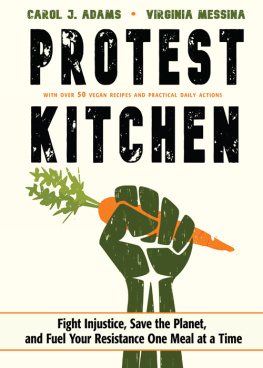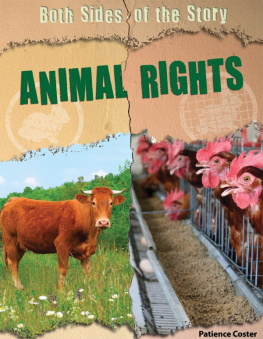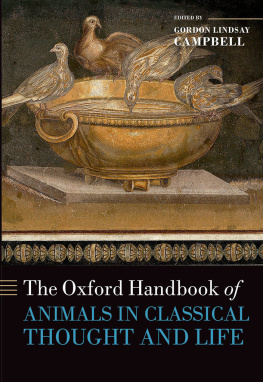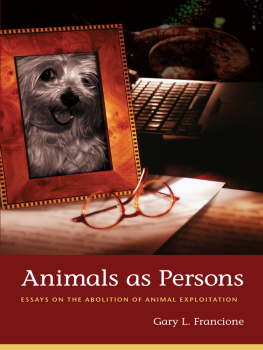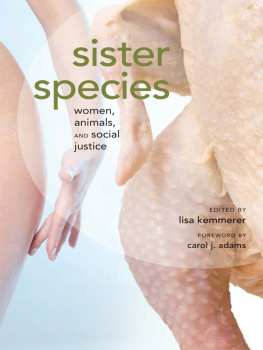This anthology has benefited considerably from the active involvement of Susanne Kappeler over the years that it was being assembled. She played an important role in commenting on the essays, and thus in the shaping of the anthology as it exists. We thank her for her ongoing commitment to this project and for the personal support she offered. We are grateful to Patricia Lamb Feuerstein and Marti Kheel for the use of the Feminists for Animal Rights bibliography, which we built upon in compiling the bibliography of feminist approaches to animal issues. We also wish to express our thanks to Marilyn Emerick, Batya Bauman, Joan Dunayer, and the Animals Agenda for their help in preparing the bibliography. We would like to acknowledge Bruce Buchanan, Greta Gaard, Steve Kellman, Stanley Fish, Jane Tompkins, Rachel Toor, and Katherine Malin for their contributions to the production of this book. The editors would also like to express their appreciation to one another for making the process of collaboration such an enriching and stimulating experience.
Introduction
Why should feminists be concerned about the treatment of animals? Why should there be a feminist perspective on the status of animals? This collection of articles begins to answer these questions.
It could be argued that theorizing about animals is inevitable for feminism. Historically, the ideological justification for womens alleged inferiority has been made by appropriating them to animals: from Aristotle on, womens bodies have been seen to intrude upon their rationality. Since rationality has been construed by most Western theorists as the defining requirement for membership in the moral community, womenalong with nonwhite men and animalswere long excluded. Until the twentieth century this animality precluded womens being granted the rights of public citizenship.
At least three responses to this historical alignment of women and animals have appeared in feminist theory. The first approach is perhaps the most familiar. It argues that women are not like animals, but are distinctly human. In The Second Sex, Simone de Beauvoir contended that women need to move beyond the physical, material level of existence and to engage in masculine transcendence, thus rejecting their animal aspects. Liberal feminists have similarly conceived womens liberation as requiring a denial of womens animality and an affirmation of their rationality. From Mary Wollstonecraft in A Vindication of the Rights of Woman to contemporary theorists, liberal feminists have stressed that women are intellects and have rational mindslike men and unlike animals. It may be that this emphasis on severing the woman-animal identification was a necessary phase in the transformation of cultural ideology about women.
More recently, however, some feminists have argued against rejecting the woman-nature connection. They maintain that what Rosemary Radford Ruether called the male ideology of transcendent dualism is at the root of both the oppression of women and the exploitation of nature, including animals (Ruether 1974, 195). Similarly, in Beyond Power (1985), Marilyn French saw the domination of women as a result of the Western masculine denial of the human-animal connection. Patriarchy, she argued, is an ideology founded on the assumption that man is distinct from the animals and superior to [them]. The reason for this superiority is mans contact with a higher power/knowledge called god, reason, or control. The reason for mans existence is to shed all animal residue and realize his divine nature, the part that seems unlike any part owned by animalsmind, spirit, or control (341). Feminist philosopher Elizabeth Spelman coined the term somatophobia to denote the equating of women, children, animals, and the natural with one another and with the despised body. Somatophobia refers to the hostility to the body that is a characteristic of Western philosophy and its emphasis on reason (Spelman 1982, 120, 127). Spelman explains that somatophobia, a legacy of the soul/body distinction, is often enacted in unequal relationships, such as men to women, masters to slaves, fathers to children, humans to animals (127). Feminists need to recognize somatophobia, Spelman argues, to see the context for womens oppression and the relationship it has with other forms of oppression.
The insights of Ruether, French, and Spelman suggest a second approach to the question of the historical connection between women and animals. This approach holds that feminist theory must engage itself with the status and treatment of the other animals. This position rejects a narrowly construed liberal feminism that pursues rights and opportunities only for women. Instead, it proposes a broader feminism, a radical cultural feminism, which provides an analysis of oppression and offers a vision of liberation that extends well beyond the liberal equation, incorporating within it other life-forms besides human beings. This is the approach represented in this anthology. We believe that feminism is a transformative philosophy that embraces the amelioration of life on earth for all life-forms, for all natural entities. We believe that all oppressions are interconnected: no one creature will be free until all are freefrom abuse, degradation, exploitation, pollution, and commercialization. Women and animals have shared these oppressions historically, and until the mentality of domination is ended in all its forms, these afflictions will continue.
A third approach (one that is very widespread) asserts that feminist theory has nothing to do with animals. It may make this assertion implicitly, by failing to engage directly with any issues concerning animals. The premise here is that silence about oppression has no theoretical implicationsthat is, that silence can be value neutral. But in reality there is no neutral place from which to observe evil. To observe in silence is to be complicit. Thus we have two choices before the evil of animal abuse: either we participate in their oppression or we challenge it.
Sometimes advocates of this approach explicitly oppose the idea that there should or can be a feminist perspective on animals oppression. Thus, in periodicals as diverse as


